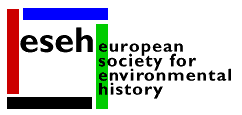RHN 27/2013 | Call
Organiser: Marcus Hall (University of Zurich); Patrick Kupper (ETH Zurich)
17-21 August 2014, Lavin, Switzerland
Deadline: 22 March 2013
Summer School in Environmental History:
Mountains Across Borders
This four-day ESEH graduate student Summer School will convene immediately before the European Society for Environmental History conference in Munich to offer intermediate to advanced graduate students the opportunity to present and discuss their work, to network with other researchers from across the world, and to witness and learn from eastern Switzerland's complicated alpine environment. The theme for this year's Summer School is "Mountains Across Borders." Our goal is to gather some 20 graduate (and post-doctoral) researchers with a half-dozen junior and senior scholars who will all give formal and informal presentations, individually and in groups, for promoting rich methodological discussions. Our instructors include environmental historians working on social, political, and conceptual questions of mountainous areas in Eurasia, Africa, and South & North America. Issues to be discussed include, but are not limited to:
- Diversity of mountain cultures and ecosystems
- Topography, elevation, and seasonality as dividing or elseuniting people
- Dependencies and conflicts between highland and lowlandpeoples
- Contamination, congestion, preservation, and restoration ofmountain systems
- Mountains as loci of disaster
- Mountains as refugia during times of war or global warming
All students will be expected to email to the organizers a 4-6000 word draft of a chapter or article (or other creative product) one month before the summer school, as well as to prepare for the school a 10-minute oral presentation of their work and a formal critique of another student's work. Instructors will focus on what they see as the main challenges of doing research and producing a compelling product, with examples drawn from their own work and experience. This seminar will therefore aim to identify the best ways of doing environmental history, using mountains and transboundaries as points of departure. Field trips will form an integral part of the school.
All interested graduate students of environmental history working in the broad area of mountains or trans-border issues are invited to apply. The summer school will begin on Saturday evening (Aug. 17) in the eastern Swiss village of Lavin and end by noon on Wednesday (Aug. 21), giving all participants time to travel the five hours by train to Munich for the opening evening reception of the ESEH conference. Many participants will want to purchase roundtrip train tickets from Munich to Lavin well in advance of the summer school.
An application for the summer school consists of sending the organizers a single email note [Subject Line: ESEH 2013 Summer School] that includes: 1) a curriculum vitae, 2) an abstract and outline of the doctoral thesis or other work that states the main challenges and research questions, and 3) a letter of support from a faculty member. All accepted participants will receive free room & board during this four-day seminar (in shared rooms), but participants are responsible for their own transportation to and from Lavin, Switzerland.
Contact: Patrick Kupper, ETH Zurich, Institute of History, RZ F 8.2, CH-8092 Zurich
Source: H-Soz-u-Kult
